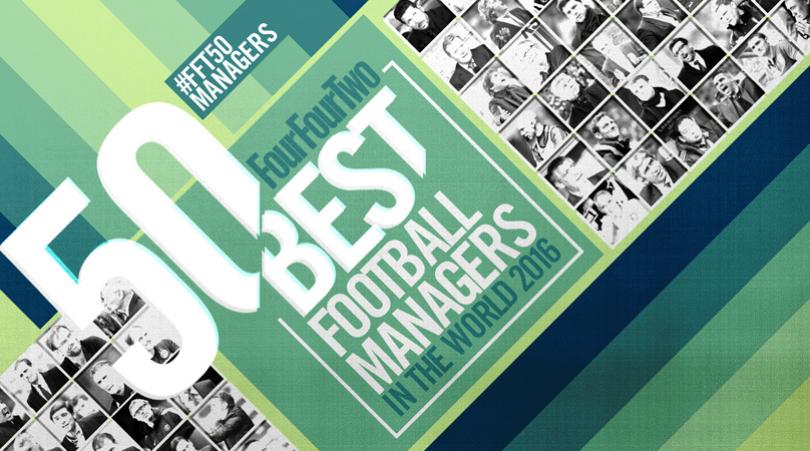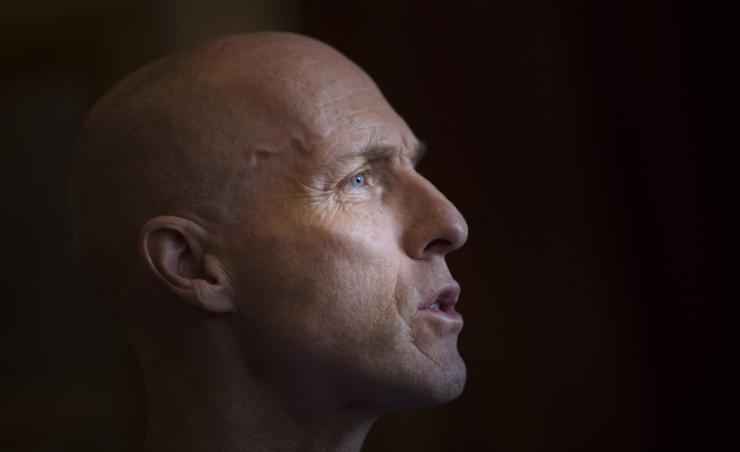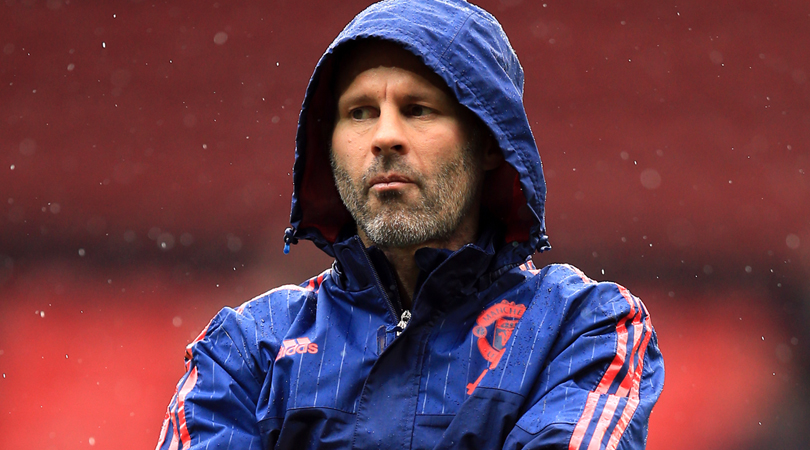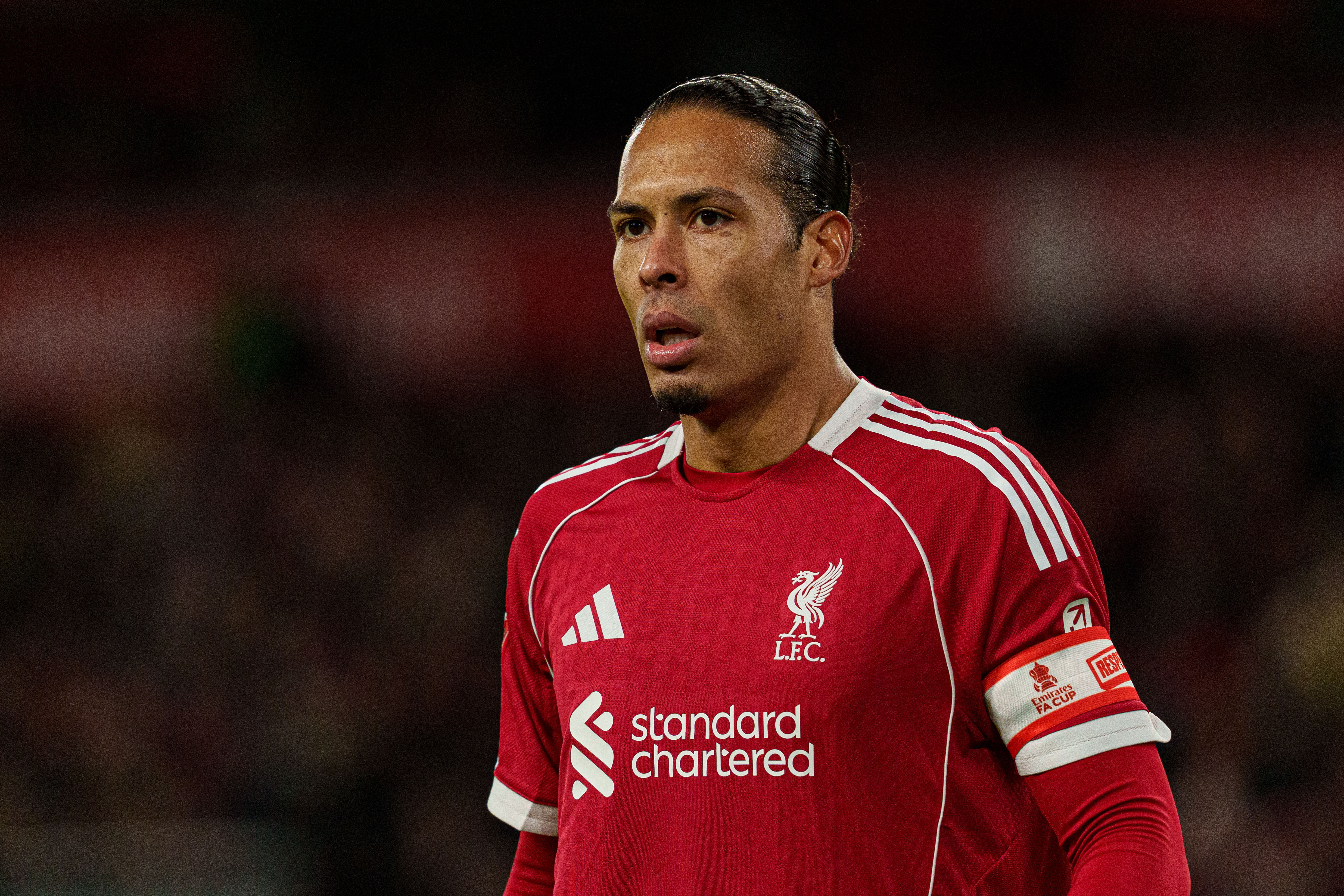Bob Bradley and British football’s distasteful distrust of American managers
Why, Seb Stafford-Bloor asks, is there still such a prevalent disgust for all things stars and stripes? Swansea’s new manager has the chance to turn it all around
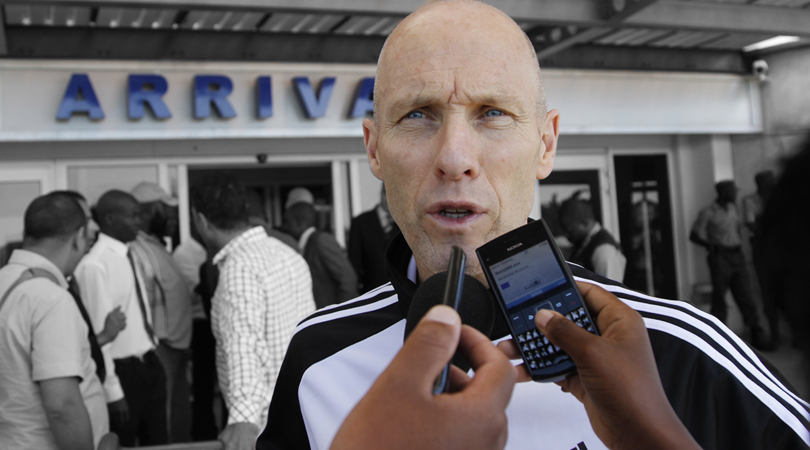
The best features, fun and footballing quizzes, straight to your inbox every week.
You are now subscribed
Your newsletter sign-up was successful
Want to add more newsletters?

Five times a week
FourFourTwo Daily
Fantastic football content straight to your inbox! From the latest transfer news, quizzes, videos, features and interviews with the biggest names in the game, plus lots more.

Once a week
...And it’s LIVE!
Sign up to our FREE live football newsletter, tracking all of the biggest games available to watch on the device of your choice. Never miss a kick-off!
Join the club
Get full access to premium articles, exclusive features and a growing list of member rewards.
The Premier League Managers’ Club has welcomed its 22nd different nationality. Bob Bradley arrives at Swansea to take over from the departed Francesco Guidolin, and will add the Welsh club to an eclectic CV that features the US Men's National Team, almost a decade managing in Major League Soccer, plus stops in Norway, Egypt and the French second division.
That 22nd nationality is also a significant one: Bradley is an American and Swansea have, in Jason Levien and Steve Kaplan, brand new American owners. It's an appointment which The Independent described, tellingly, as an "Americanisation" and one which has reflexively aroused suspicion. Even now, even after the growing multiculturalism of the Premier League era, to some this doesn't feel quite right.
Jobs for the Brits
Bradley should actually be embraced. He stands against many of the disliked modern trends in the game and has been brave enough and bold enough to pursue a circuitous career.
In the past he has spoken out against the "jobs for the British boys" culture which has plagued English football for a long time and he has been willing to embrace opportunities as and where they fall, rather than only if they occur within his comfort zone. Rory Smith, chief football correspondent at The New York Times, recalled meeting him in Cairo shortly after the country's 2011 revolution. Bradley had apparently eschewed any extra security and was intent on "feeling the city" at a time of seismic social tension; it's difficult to imagine the average British manager happily straying that far from the beaten path.
But he did what people always urge American players to do -- take less money to "prove himself" in Europe. Today it all paid off.
— Thierry Ennui (@Heisenbergkamp) October 3, 2016
The best features, fun and footballing quizzes, straight to your inbox every week.
So he's earned his chance here and done more than most to get it. Bradley has quite obviously had to battle pejorative assumptions during his career, and fight his outlier status at every turn, but why is that? Why should the colour of his passport prevent him from being taken seriously or, more problematically, why should it stop him being judged on his individual merits?
The answer probably lies in a mixture of inconvenient associations and unfortunate history.
American evils
In the past he has spoken out against the "jobs for the British boys" culture which has plagued English football for a long time
British supporters have long memories and, typically, resent anything which threatens football's past or tries to alter its state. In that respect, Americans are seen as evangelists. Their own sporting culture is very different. The NFL has become extremely popular in the United Kingdom, the NBA has many fans over here, and baseball and ice hockey are regularly shown on British television.
Nevertheless, their structure, stop-start nature and general presentation is vastly different in ways which many find intolerable. As self-appointed arbiters of sporting decency, we also feel entitled to sneer at the apparently regimented nature of American fandom. To our eyes, the stadium food vendors, the brass bands of college football and formulaic chanting are all uncomfortably alien and collectively represent the kind of organised fun that the British personality has been wired to hate.
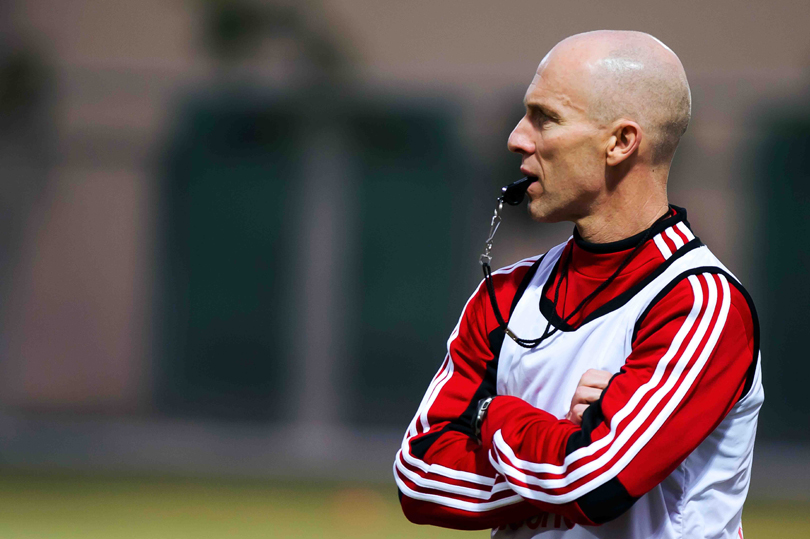
Sport is miserable, sport is suffering and football is both of those things in abundance; the more dour it is, the more authentic it feels. By contrast, the Americans make it look like a wonderful day out: people smile and laugh, the food looks hearty, and the transport systems appear to work. How peculiar – and how wrong.
Irrational fears
Irrationally, some won't be able to separate Bradley from those perceived evils. Right up to the point when he emerges at the Emirates Stadium in a fortnight's time, there will be those who expect him to stomp around the technical area in a pair of cowboy boots and spend the first half chewing tobacco.
That he has been appointed by American owners only hardens those beliefs and heightens the fear. Today an American manager, tomorrow t-shirt cannons, sponsored time-outs and candy floss in the car park?
Football fans aren't afraid of individuals, but instead, of what their arrival might bring. It's unfair and unfounded, but watching a Bradley-like figure ascend into authority stokes those paranoid fires. He is just a football coach. He'll train players, pick them, and throw around all the usual press-conferences platitudes. But when he opens his mouth and those New Jersey vowels come tumbling out, alarm bells will clang. It's a ridiculous phobia, but it still exists. Clear eyes, full hearts… come on, it's not going to be like that.
Some fears are more understandable than others, though. While plenty of Americans have left positive on-field impressions in this country, non-playing personalities have had a more chequered past. In recent years, Randy Lerner initiated the tailspin which ended Aston Villa's top-flight residency, Tom Hicks and George Gillett caused Liverpool all sorts of damage, and Manchester United continue to creak under the weight of the Glazer family's debt. While not as dramatically unsuccessful, plenty of Sunderland fans also resent Ellis Short's stewardship of their club and object to his meagre ambitions.
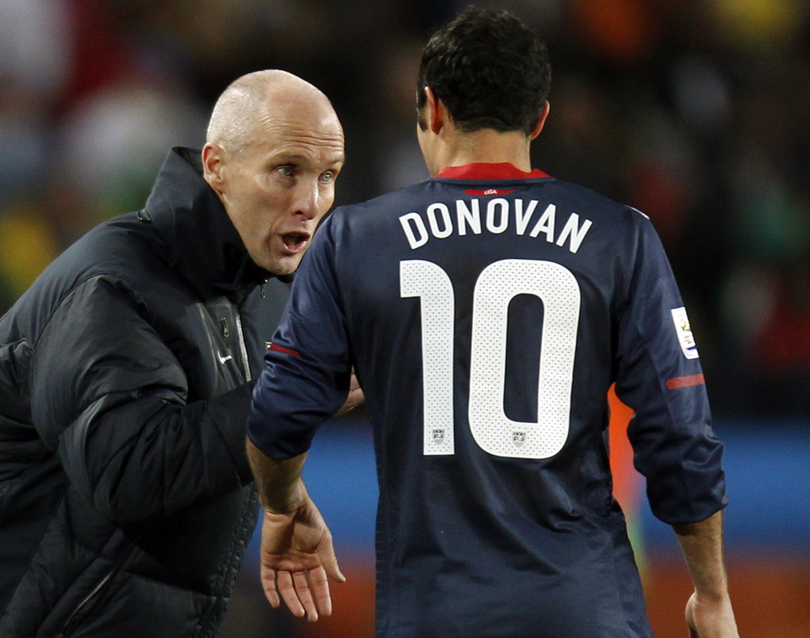
That is the real version of the imagined evangelistic threat: those examples exist because of naivety and greed rather than any specifically American tendencies, but the negative associations are hard to shake. It matters not that for every Hicks and Gillett there is a Mike Ashley and a Craig Whyte, for each Randy Lerner a couple of John Batchelors, or that the Oyston family are arguably more callous than the Glazers. The assumption is that Americans have been corrupted by their franchise culture and can never truly grasp the fabric of what football means in this country. It's a preposterous belief and presumably one which is fairly insulting, but it lingers nevertheless and it will continue to do so until it's defeated by example.
On the back foot
Swansea owners have already made Bradley's job harder than it should be. After his appointment, the club's supporters' trust expressed their dismay at not being consulted over the decision to sack Guidolin, or of being involved in the recruitment of his successor.
It was a PR own goal. Given Swansea's history and the success of their collaborative model, it was a reckless move which has left their new head coach with an extra layer of distrust to push through. He is not well known in European football and has no elite league record. Those who know best swear on his virtues but, because of the nature of his hiring, he now has a battle to fight before he is anything other than the American appointed autonomously by the Americans.
If new owners don't want to listen, even having 21% of shares just means you're a nagging voice rather than part of the team https://t.co/hWs1LYS3UQ
— Swans Stats (@We_R_PL) October 3, 2016
It's important that he's a success, then. The portrayal of Bradley is of someone, at 59, who has waited his entire career for this chance and has quite literally had to cross the world to get it. On a personal level, he deserves this moment in the spotlight. In a broader sense, though, he is a trailblazer and the employment opportunities of the next generation of American coaches, to a degree, rely upon his performance at the Liberty Stadium.
He represents himself, of course, and doesn't owe it to anybody to act as an envoy, but if he breaks this door down it will stay off its hinges for good. Perhaps only then will English football begin to lose its distrust.
Seb Stafford-Bloor is a football writer at Tifo Football and member of the Football Writers' Association. He was formerly a regularly columnist for the FourFourTwo website, covering all aspects of the game, including tactical analysis, reaction pieces, longer-term trends and critiquing the increasingly shady business of football's financial side and authorities' decision-making.
 Join The Club
Join The Club










